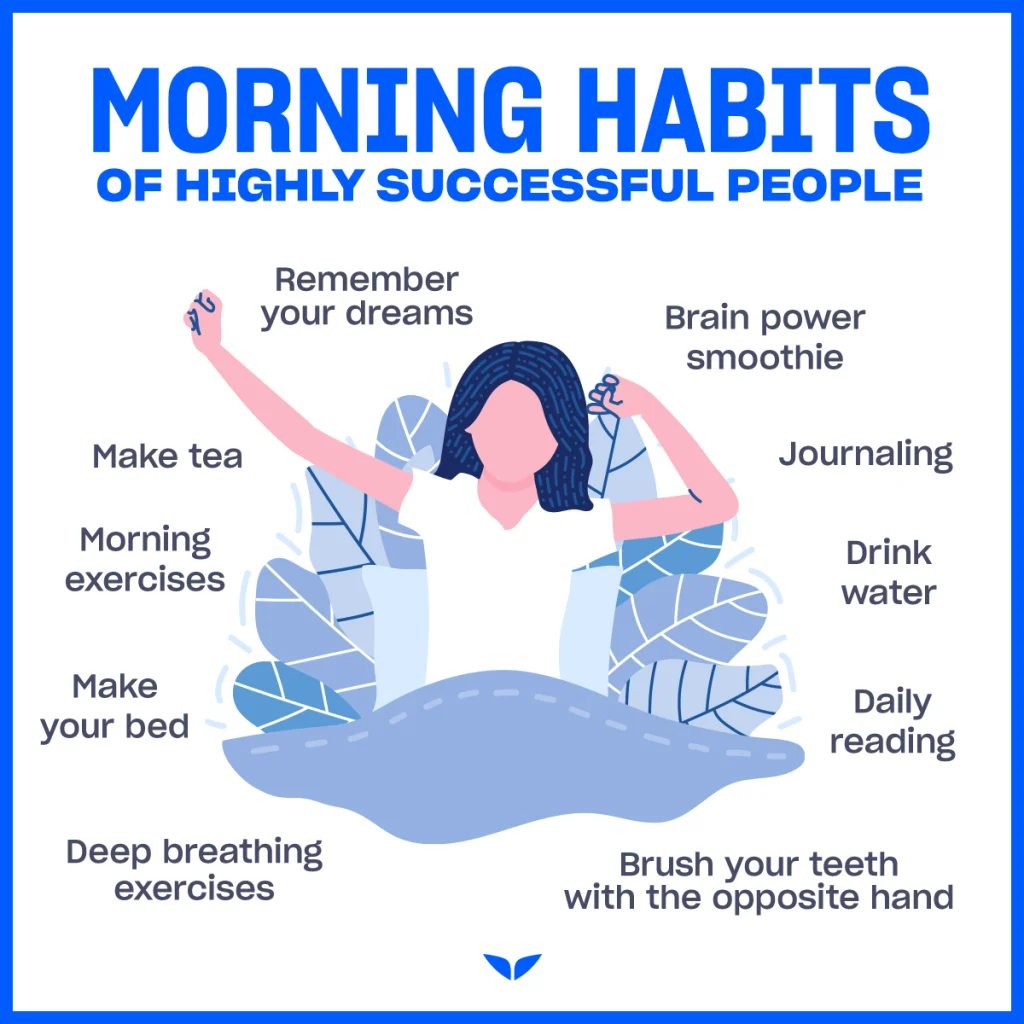LSD, Magic Mushrooms, Psychedelics
Simple Morning Habits That Improve Focus All Day
If you often find yourself distracted, scattered, or mentally drained before the day even hits noon, you’re not alone. The way we start our morning plays a critical role in how well we stay focused, productive, and calm throughout the day.
By incorporating a few intentional habits into your morning routine, you can train your brain to be sharper, calmer, and more efficient — no extra caffeine required.
Here are simple, science-backed morning habits that help improve focus and clarity all day long.
1. Wake Up at the Same Time Every Day
🧠 Why It Works:
Your brain loves consistency. Waking up at the same time every day strengthens your circadian rhythm — the internal clock that regulates sleep, energy, and alertness.
✅ How to Do It:
- Set a fixed wake-up time, even on weekends.
- Aim for 7–9 hours of quality sleep each night.
- Resist the snooze button — it disrupts sleep cycles and worsens grogginess.
When your body wakes naturally and consistently, your mind becomes clearer and more alert.
2. Hydrate Before Anything Else
🧠 Why It Works:
After 6–8 hours of sleep, your body is naturally dehydrated. Dehydration causes fatigue, brain fog, and reduced attention span.
✅ How to Do It:
- Drink a full glass (250–500 ml) of water within 10–15 minutes of waking.
- Add lemon or a pinch of sea salt for extra minerals and hydration support.
This simple step jumpstarts your metabolism and wakes up your brain.
3. Get Natural Sunlight Within 30 Minutes
🧠 Why It Works:
Exposure to natural light in the morning resets your internal clock and boosts production of cortisol and serotonin — two key hormones for energy and mood.
✅ How to Do It:
- Open your curtains and sit by a window.
- Step outside for 5–15 minutes (a walk is even better).
- If it’s dark in the morning, consider a light therapy lamp.
Morning light tells your brain, “It’s time to focus,” and improves energy regulation throughout the day.
4. Avoid Screens for the First 30–60 Minutes
🧠 Why It Works:
Jumping into your phone or email first thing floods your brain with dopamine and overstimulation — making it harder to focus on deeper, more meaningful tasks later.
✅ How to Do It:
- Keep your phone in another room or on airplane mode until your morning routine is complete.
- Use the first hour for quiet, focused, analog activities (journaling, reading, stretching, planning your day).
Start your day in response mode, not reaction mode.
5. Practice 5–10 Minutes of Mindfulness
🧠 Why It Works:
Mindfulness meditation improves attention span, working memory, and emotional regulation — all key to staying focused under pressure.
✅ How to Do It:
- Sit quietly and focus on your breath.
- Use a guided meditation app like Headspace or Insight Timer.
- Try breathwork: inhale for 4 seconds, hold for 4, exhale for 6.
Even a few minutes helps train your brain to stay calm and attentive throughout the day.
6. Move Your Body
🧠 Why It Works:
Exercise increases blood flow to the brain and releases dopamine and endorphins, which enhance mood and focus. It also reduces stress hormones like cortisol.
✅ How to Do It:
- Do 5–15 minutes of light exercise: yoga, stretching, brisk walking, or bodyweight workouts.
- If you’re short on time, even a few jumping jacks or stretches can activate your system.
This helps your body shake off sleep and primes your brain for clear thinking.
7. Eat a Protein-Rich, Balanced Breakfast
🧠 Why It Works:
A well-balanced breakfast stabilizes blood sugar levels, supports brain function, and helps avoid the late-morning energy crash.
✅ How to Do It:
- Include protein (eggs, yogurt, tofu), healthy fats (avocado, nuts), and complex carbs (oats, fruits).
- Avoid high-sugar breakfasts that spike blood glucose and lead to a focus-killing crash.
Fuel your brain like it matters — because it does.
8. Plan Your Top 3 Priorities
🧠 Why It Works:
Decision fatigue starts early if your brain isn’t directed. Choosing your key priorities in the morning helps you stay focused and avoid task-switching.
✅ How to Do It:
- Write down your top 3 goals for the day.
- Ask: “What would make today feel productive and peaceful?”
- Block out focus time on your calendar to work on your goals without interruptions.
Clarity = focus. Give your mind a map before you start the day.
Conclusion: A Focused Day Starts with a Focused Morning
You don’t need a two-hour miracle morning to stay focused all day. Instead, you need a few intentional habits that train your mind to slow down, focus up, and stay steady — even when life gets noisy.
By waking consistently, fueling your brain, limiting distractions, and grounding yourself before the rush begins, you set a tone that carries through every meeting, task, and conversation.

